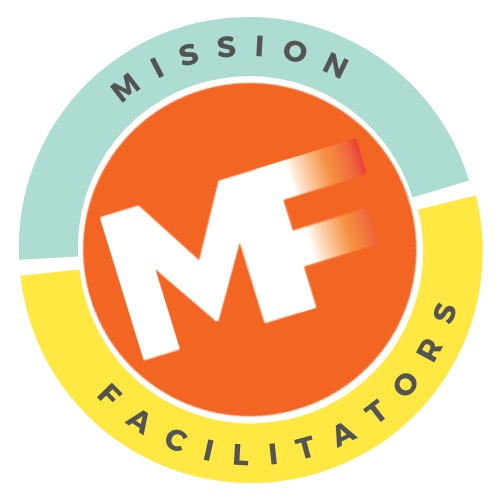The TEDX Talk
I’D LIKE you all to imagine you’re an engineer, working on a NASA project, to launch a shuttle into space. Due to weather and other issues, the launch has been postponed 8 times, each costing NASA millions of dollars. The pressure is mounting to get this bird off the ground. The date is January 28th, 1986, it’s the 9th attempt, and you notice weather calls for a launch temperature of 30 degrees. Then it hits you! Your intuition tells you the O-ring that supports the joints on the solid rocket boosters won’t hold. It’s just too cold out. You inform your superiors of your concerns …. but are told the launch is a “go”. And of course, we all know what happened 17 minutes into that fateful flight.
I remember where I was on the day the Challenger exploded. I was working for a small theatre in Minneapolis. We were all stunned watching the tragedy on T.V. 4 years later I read The President’s Commission on the Space Shuttle Challenger Accident, it said: “…engineers’, hunches and concerns were disregarded by top management because of the absence of hard data.” Had those hunches been heard, it’s possible the Challenger crew would still be with us, today.
It was this event, that got me to ask myself: “How do we identity, trust, and have the courage to use our intuition? And, what is needed in a company’s culture to encourage people to share their intuition, even without hard data?
Intuitive thinking is described as fast, automatic, subconscious, a pattern-recognizer, and communicates through feelings. Analytical thinking, on the other hand, is slow, deliberate and conscious, and is conveyed through the spoken and written word.
Since the Challenger accident, I started paying more attention to my intuition. Today, it is one of the most important things I have in my life. It has helped me make some really good decisions, the best example is; 26 years ago, most of my friends and family thought I was in a rebound relationship with another recently divorced person. And against a lot of pressure, I followed my intuition, got married, and we’re still the of best friends.
Not listening to my intuition has led me to some disastrous outcomes. The day before my first marriage, my intuition said “this isn’t right”, and I considered calling off the wedding, but I was so afraid of disappointing my family and feeling the shame and isolation, that I didn’t. I went through with it anyway, and 18 months of couples counseling later, we split.
According to an informal poll conducted by a therapist, every one of her divorced clients knew early on the relationship wouldn’t last. Perhaps some of you can relate.
Like breathing, we all have the tools to be intuitive. But sometimes our fears prevent us from using it, or we suffer from analysis paralysis. I think there are two reasons for this: 1: Intuition has gotten a bad rap in some parts of our Western culture. Many feel humans have progressed from relying on primitive, and even religious thinking to analytical and scientific thinking. And, 2 we want to be accepted, and being intuitive can be seen as flaky. But also, intuition seeks truth, and sometimes we’re afraid of what we’ll find, so we might overanalyze in order to avoid.
Today, our biggest challenge is not healthcare, poverty, political divisiveness or even climate change: Our biggest challenge is within ourselves, getting out of our own way, finding and trusting our authentic “intuitive” voice. With intuition we make better decisions by accessing vast amounts of information and experience, we forge real connections with one another by deeply listening, and we creatively solve our biggest challenges by seeing problems from different perspectives.
History is full of examples of people who’ve trusted and applied their intuition: Greek scholar Archimedes had his eureka moment while taking a bath; Arthur Fry came up with the idea of Post-It-Notes while singing in church; George De Mestral was walking his dog when he came up with the idea for Velcro.
Many of us know we’re intuitive, but lack the courage or safety to speak up. This is especially true at work.
For example, in some organizations, the mantra is “evidence-based decisions”, where only subject matter experts are allowed to speak up. And, while company value statements encourage people to share their ideas, many organizations still dismiss anyone who can’t speak the language of Data. To speak up during a meeting with no more than a “gut feeling” is cause for being seen as flaky and unprepared.
Employees who keep quiet in overconfident organizations can create a company-wide blind spot – with devastating results. Blockbuster had the opportunity to buy Netflix but passed, and now, just down the street, stands their last store.
What would have happened if Blockbuster, Blackberry, and Kodak had cultures that valued data AND intuition?
Today we face new challenges: we live in a world where the speed of change right now is the slowest it will be for the rest of our lives. Think about that! And to keep up with this pace of change, we need to recognize patterns faster, deepen collaboration and accelerate learning. We need organizations that encourage intuition, so employees feel safe enough to point out issues and share untested creative ideas.
Some organizations are getting the message. A recent Harvard Business Review article said that the higher up you go, the more important intuition becomes because it makes executives better listeners, decision-makers, and creative problem solvers. The New Jersey Institute of Technology studied the relationship between intuition and business success and found 80 percent of executives whose companies’ profits had more than doubled in the past five years had above-average intuition skills. Intuition needs a seat at the table, and, each of us needs to hone our intuitive skills on a regular basis.
So what can you do, right now, to start trusting your intuition? I have three ideas for you.
1. Get present, which is the ability to quiet our mind. If we want to live in the present we need to choose to do so, by slowing down our breathing, getting back into our body, noticing how we and others are feeling, and letting go of control. So, here’s your challenge: Meditate for 10 minutes for the next 10 days and notice what difference it makes in your ability to be present.
2. Purpose: This is asking yourself a question before doing anything important: Like, how can I improve the energy in my team or what would make our meetings more fun – and listening for your intuition to provide you an answer.
3. Play: The ability to experiment without the requirement for success. Here are some ground rules to consider: We don’t have to get it right the first time; we will find humor and ease in this situation. We can have fun with this; we won’t tolerate negativity.
So I leave you with 3 affirmations for a future filled with intuition. image a great conversation you’d like to have with another person: Sense your intuition providing deep listening, empathy, and interaction that neither of you is in control of. Imagine an exciting brainstorming session with your colleagues: Notice your intuition fueling ideas that build off of one other. Imagine working on a large social problem with a group of people representing different opinions: Observe intuition helping reframe how people see the issue.
When we all identify, trust and use our intuition, we’ll improve our businesses, teach our kids to be independent thinkers, and maybe we can address the really big problems to make the world sustainable and healthy, a place where we can express our highest and best.
As Albert Einstein said: “The intuitive mind is a sacred gift and the rational mind is a faithful servant. We have created a society that honors the servant and has forgotten the gift.” Have the courage to remember your gift.
“…THE HIGHER UP YOU GO, THE MORE IMPORTANT INTUITION BECOMES BECAUSE IT MAKES EXECUTIVES BETTER LISTENERS, DECISION-MAKERS, AND CREATIVE PROBLEM SOLVERS.”
– Harvard Business Review Article.

